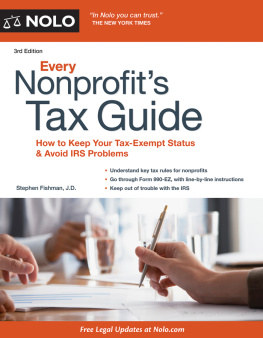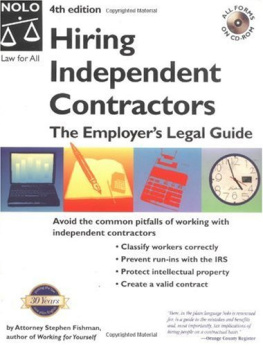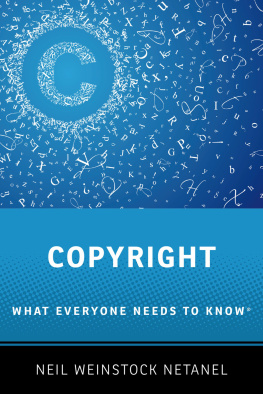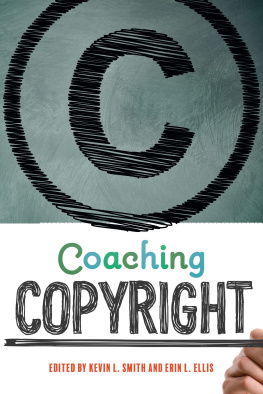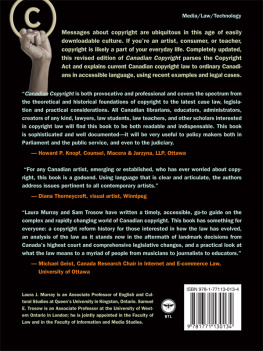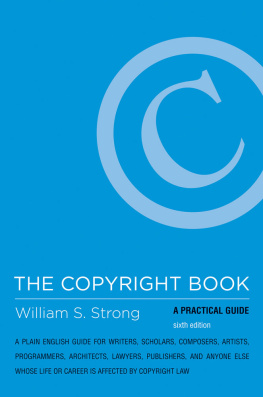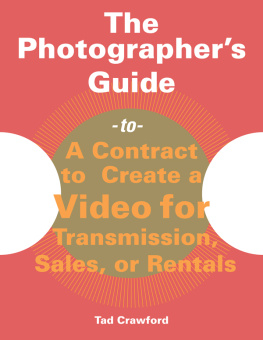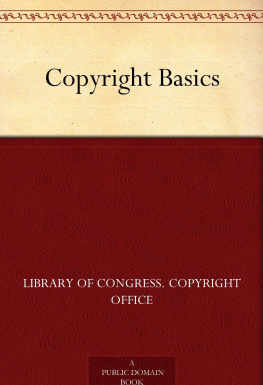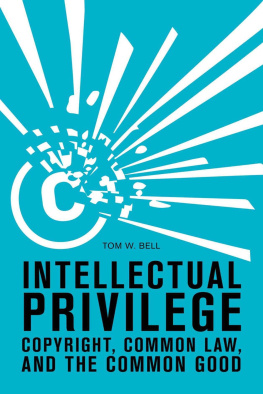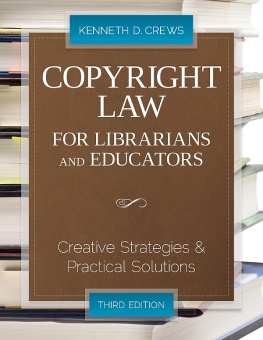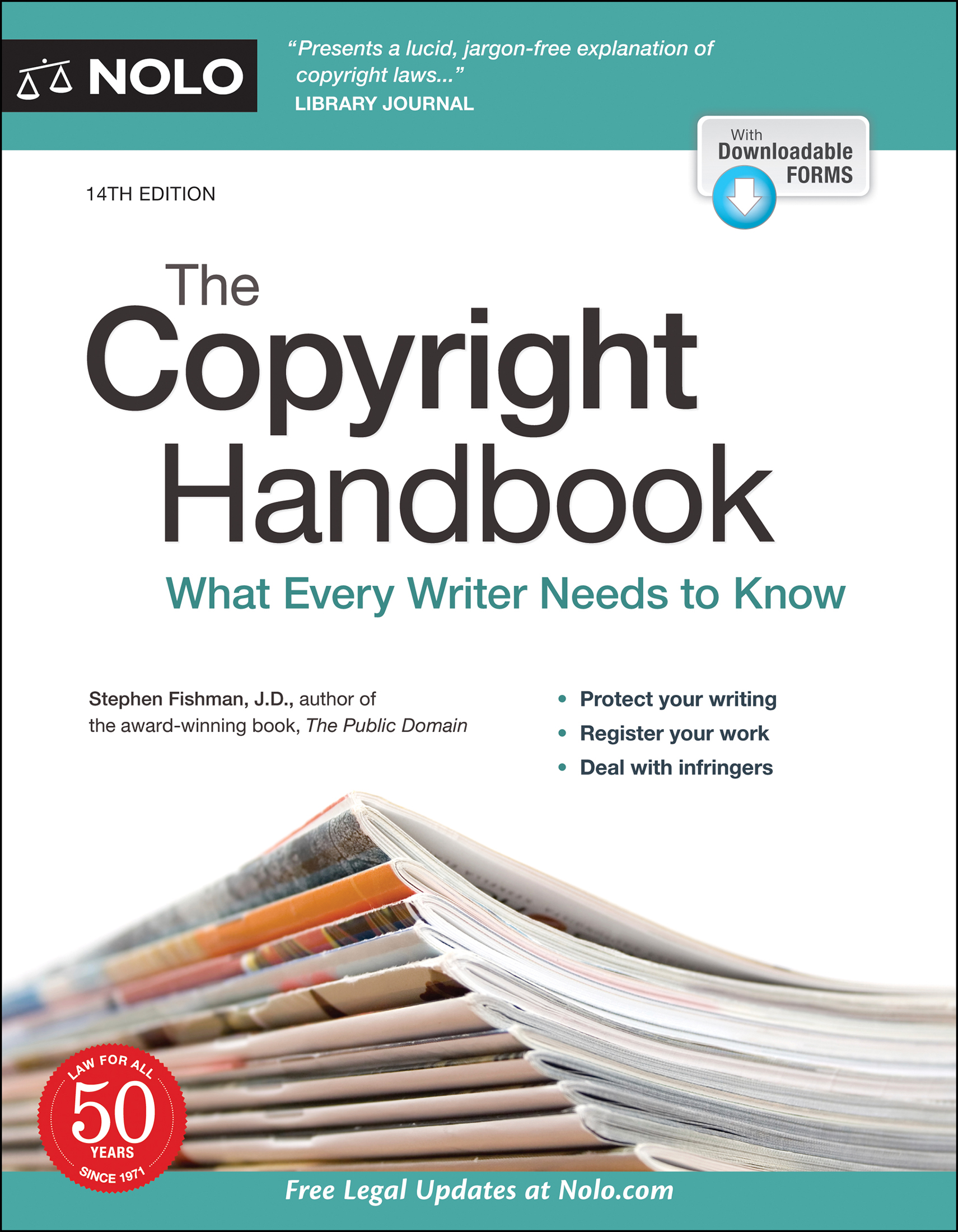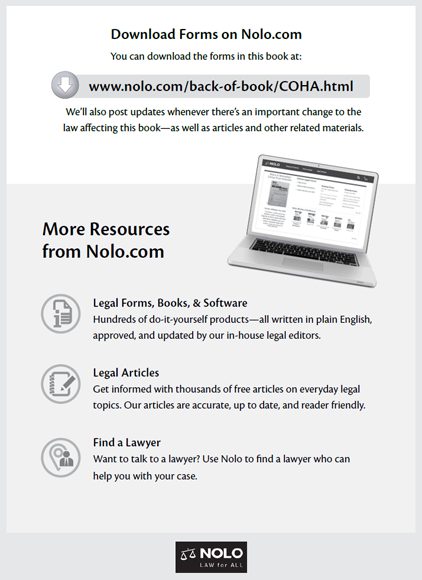

| The Trusted Name (but dont take our word for it) |
In Nolo you can trust.
THE NEW YORK TIMES
Nolo is always there in a jam as the nations premier publisher of do-it-yourself legal books.
NEWSWEEK
Nolo publications... guide people simply through the how, when, where and why of the law.
THE WASHINGTON POST
[Nolos]... material is developed by experienced attorneys who have a knack for making complicated material accessible.
LIBRARY JOURNAL
When it comes to self-help legal stuff, nobody does a better job than Nolo...
USA TODAY
The most prominent U.S. publisher of self-help legal aids.
TIME MAGAZINE
Nolo is a pioneer in both consumer and business self-help books and software.
LOS ANGELES TIMES
14th Edition
The Copyright Handbook
What Every Writer Needs to Know
Stephen Fishman, J.D.

FOURTEENTH EDITION | JANUARY 2021 |
Editor | REBECCA PIRIUS |
Book Design | SUSAN PUTNEY |
Proofreading | SUSAN CARLSON GREENE |
Index | VICTORIA BAKER |
Printing | BANG PRINTING |
ISSN: 2325-4564 (print)
ISSN: 2325-4572 (online)
ISBN: 978-1-4133-2783-0 (pbk)
ISBN: 978-1-4133-2784-7 (ebook)
This book covers only United States law, unless it specifically states otherwise.
Copyright 1992, 1994, 1996, 1997, 1998, 2000, 2003, 2004, 2006, 2008, 2011, 2014, 2017, and 2020 by Stephen Fishman. All rights reserved. The NOLO trademark is registered in the U.S. Patent and Trademark Office. Printed in the U.S.A.
No part of this publication may be reproduced, stored in a retrieval system, or transmitted in any form or by any means, electronic, mechanical, photocopying, recording, or otherwise without prior written permission. Reproduction prohibitions do not apply to the forms contained in this product when reproduced for personal use. For information on bulk purchases or corporate premium sales, please contact .
Please note
We know that accurate, plain-English legal information can help you solve many of your own legal problems. But this text is not a substitute for personalized advice from a knowledgeable lawyer. If you want the help of a trained professionaland well always point out situations in which we think thats a good ideaconsult an attorney licensed to practice in your state.
Acknowledgments
Many thanks to:
Jake Warner for giving me the opportunity to write a book on such an interesting subject and for his editorial contributions.
Richard Stim and Steve Elias, whose ideas and superb editing made this a much better book. Rebecca Pirius and David Goguen for their editing.
Kent Dunlap, Assistant General Counsel, U.S. Copyright Office, and Lisa Goldoftas for reviewing the chapter on copyright registration.
Dedication
This book is dedicated to my mother, Helen F. Poellot.
About the Author
Stephen Fishman has been writing about the law for over 25 years. He received his law degree from the University of Southern California in 1979. He has published 20 books and hundreds of articles, and has been quoted in The New York Times, Wall Street Journal, Chicago Tribune, and many other publications. He is the author of the treatise Copyright and the Public Domain (Law Journal Press). His Nolo publications include:
The Public Domain: How to Find Copyright-Free Writings, Music, Art & More
Consultant & Independent Contractor Agreements
Deduct It! Lower Your Small Business Taxes
Every Landlords Tax Deduction Guide
Home Business Tax Deductions: Keep What You Earn
Tax Deductions for Professionals
Working for Yourself: Law & Taxes for Independent Contractors, Freelancers & Gig Workers of All Types, and
Working With Independent Contractors.
Table of Contents
Your Legal Companion
In 2007, Amazon, the nations largest online seller of print books, unveiled the Kindle, an electronic book reader that allows users to download books from almost anywhere in the United States (and within minutes). Unlike the books that have been sold for the past six centuries, the Kindle does not require ink to be placed on paper, glue to be applied to a binding, or books to be shipped from publisher to a store. But the Kindle does have one thing in common with the millions of books that came before it: It offers the written word to readers... and most of the works sold for the Kindle arelike most of the books sold at Amazonprotected by copyright.
Thats what this book is about: copyright for the written word.
If youre a writerwhether a novelist, short story writer, poet, playwright, screenwriter, biographer, historian, author of how-to books, writer of scientific and technical works and other works of nonfiction, published or unpublished author, journalist, blogger, freelance writer, person employed by others to create written works, person who employs others to create written works, editor who works for a magazine or a book publisher, established publisher, self-publisher, librarian, teacher, or literary agentthis book is for you.
This book is composed of two parts:
The first part (, Copyright Basics), and a how-to guide on copyright notice and registration with the Copyright Office.
The second part () serves as your copyright resource; it discusses the most important aspects of copyright law in detail. If you are unable to find the answers to your questions in earlier chapters, the final chapter tells you how to do further research on your own and, if necessary, find a copyright attorney.
Not everyone will want to read the whole book. The parts you do want to read will, of course, depend on why you bought the book; most likely for one of these three reasons:
You want to know how to correctly fulfill the procedural requirements necessary to obtain maximum copyright protection for a written work. If you want to know how to place a valid copyright notice on your work (thats the followed by a date and name you usually see on published works), read for a step-by-step explanation.
You have a specific copyright question or problem. If you have a specific question or problem, start with the table of contents at the front of the book. For example, suppose you want to know whether you need permission to use a quotation from Abraham Lincoln that you found in a recent Civil War history. By scanning the table of contents, you would discover that , Using Other Authors Words, is probably the place to start. If you didnt find a helpful topic in the table of contents, you could use the index at the back of the book and search under terms such as quotations or public domain.


